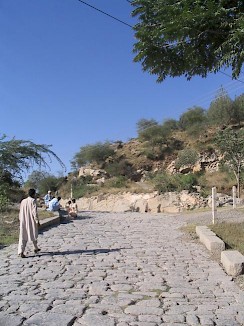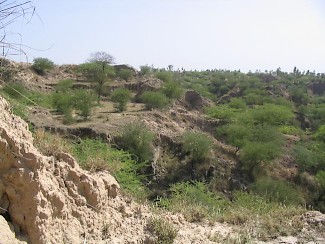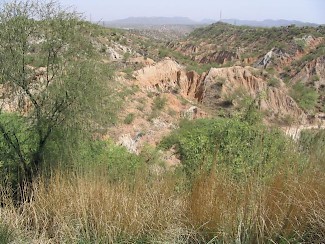Grand Trunk Road - Livius (original) (raw)
Grand Trunk Road (Old Indian Uttarāpatha): ancient route from Afghanistan through the Punjab to the Ganges valley.
Grand Trunk Road
The Grand Trunk Road is as old as the hills. In Antiquity, it was known as Uttarāpatha, "the upper road", and it connected the cities of the Ganges plain (e.g., Patna), with the towns in the eastern Punjab (Amritsar, Lahore), and Taxila in the western Punjab. After crossing the Indus near Hund and passing along Shahbazgarhi (where king Ashoka left his famous rock edicts), Peucelaotis, and Peshawar, it reached the river Kabul, crossed the Khyber pass and touched the heart of Afghanistan. By crossing the Hindu Kush mountain range, one could reach the Silk Road.
Traveling from Rawalpindi or Islamabad to Lahore, you're part of one of the greatest tales of history. During the reign of the Maurya emperors, Buddhism traveled to the west to Gandara, along the Uttarāpatha; a millennium later, Islam traveled to the east along the same route. In the sixteenth century, the Mughal emperors paved the road.
Along the Grand Trunk Road, east of Islamabad
Today, the Grand Trunk Road is a fascinating highway, used by cars, camels, and cattle
touching the Railway and the Telegraph on one side, and, on the other, the days of Harun al-Raschid
to borrow a phrase from Rudyard Kipling. You mustn't be surprised when your car gets into a traffic jam, created by dromedaries using one of the lanes.
One of the travelers was Alexander the Great, the Macedonian king who conquered the Punjab in 326, and proceeded along the Grand Trunk Road to the river Hydaspes or Jhelum, where he fought against a raja named Porus. Alexander won this battle because he was able to cross the river, something Porus believed was impossible in the monsoon season.
Landscapel along the Grand Trunk Road, east of Islamabad
What he did not know - and could not possibly know - was that Alexander had ordered one of his officers, Coenus, to transport the ships he had once used to cross the river Indus, all the way to the Hydaspes. When you travel along the Grand Trunk Road and see the hills and ravines, you cannot help but feel great admiration for the soldiers who carried the ships for 200 kilometers through this country. Coenus must have known what his men had been through, and it comes as no surprise that a couple of weeks later, he said to Alexander that it was better to return. The men were exhausted.


